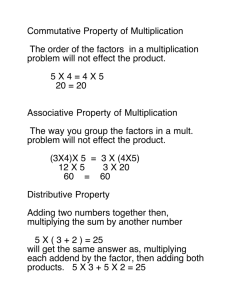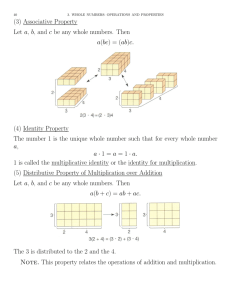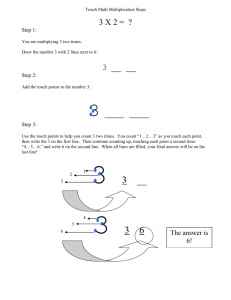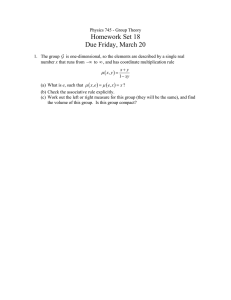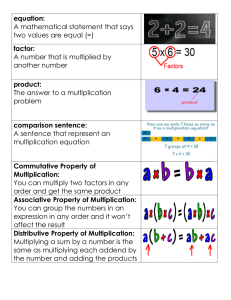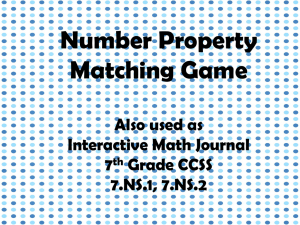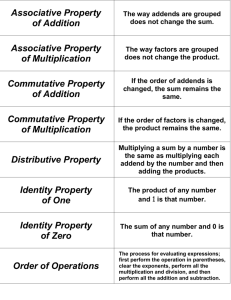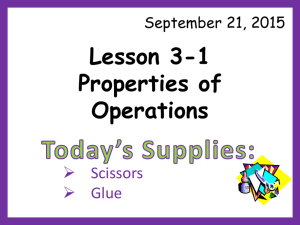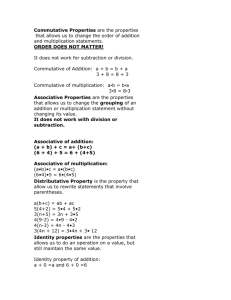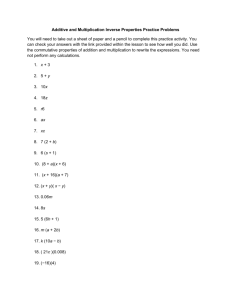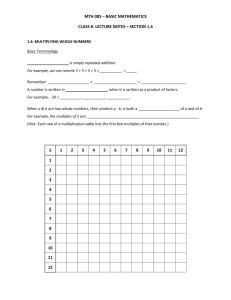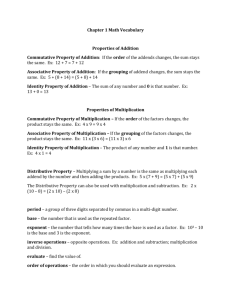Number Properties: Identity, Commutative, Associative
advertisement
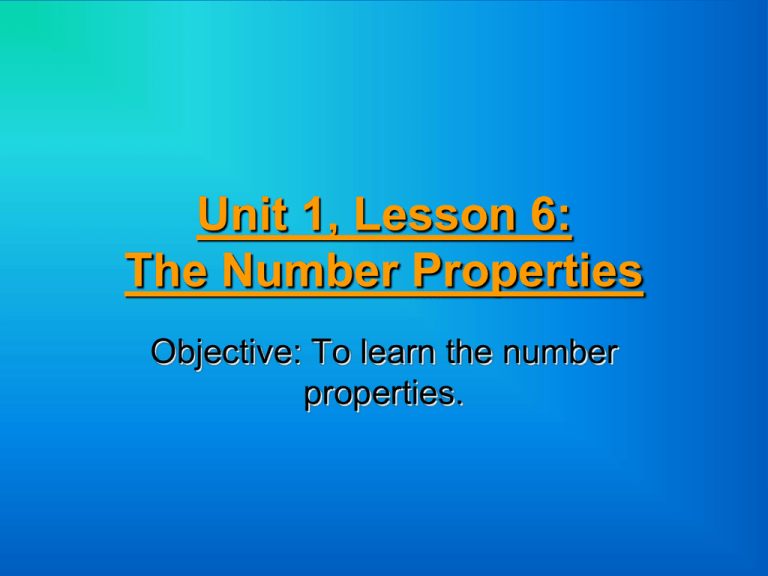
Unit 1, Lesson 6: The Number Properties Objective: To learn the number properties. The Number Properties • You use operations such as addition, subtraction, multiplication, and division to solve expressions. • These operations follow certain properties that are always true. The Number Properties 1. Tell if it is true or false. a) 8 + 0 = 8 b) 0 + 8 = 0 c) 8 = 0 + 8 d) a + 0 = a e) 0 + a = 0 What rule can you make about adding zero? The Number Properties 1) Identity Property of Addition - adding zero does not change the value of a number x+0=x The Number Properties 2. Tell if it is true or false. a) 5 ● 1 = 1 b) 1 ● 5 = 5 c) 1 ● 5 = 15 d) a ● 1 = a e) 1 ● a = 1 What rule can you make about multiplying by one? The Number Properties 2) Identity Property of Multiplication - Multiplying by 1 does not change the value of a number x●1=x The Number Properties 3. Tell if it is true or false. a) 5 + 1 = 1 + 5 b) 5 – 1 = 1 – 5 c) 9 + 3 + 2 = 2 + 3 + 9 d) a + b = b + a e) 10 – 8 = 8 – 10 f) 4 ● 1 = 1 ● 4 g) 4 ÷ 2 = 2 ÷ 4 What rule can you make about the order of numbers? The Number Properties 3) The Commutative Property (addition & multiplication) -The order of numbers does not matter! a+b=b+a ab = ba The Number Properties 4. Tell if it is true or false. a) (5 + 1) + 2 = 5 + (1 + 2) b) 9 + (3 + 2) =(9 + 3) + 2 c) (8 – 2) – 1 = 8 – (2 – 1) d) 4 ● (1 ● 2) = (4 ● 1) ● 2 e) 4 ÷ (2 ÷ 1)= (4 ÷ 2) ÷ 1 What rule can you make about the grouping of numbers? The Number Properties 3) The Associative Property (addition & multiplication) -You can regroup numbers! (a + b) + c = a + (b + c) (a ● b) ● c = a ● (b ● c) Practice • Identify the property below: 1) 5 + 14 = 14 + 5 2) 0 + 11 = 11 3) 8 ● (4 ● 7) = (8 ● 4) ● 7 4) 6 = 1 ● 6 • Write an example for the property 5) The Associative Property of Addition 6) The Commutative Property of Multiplication
